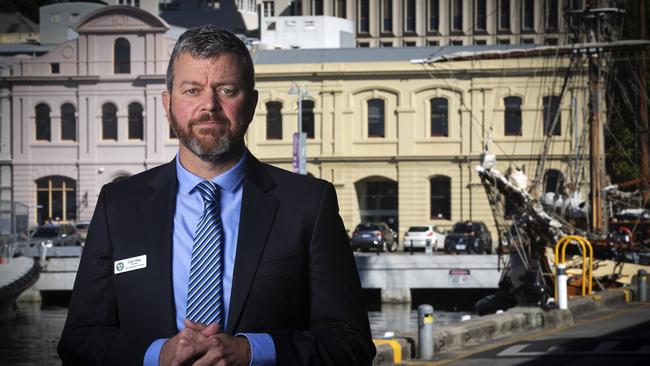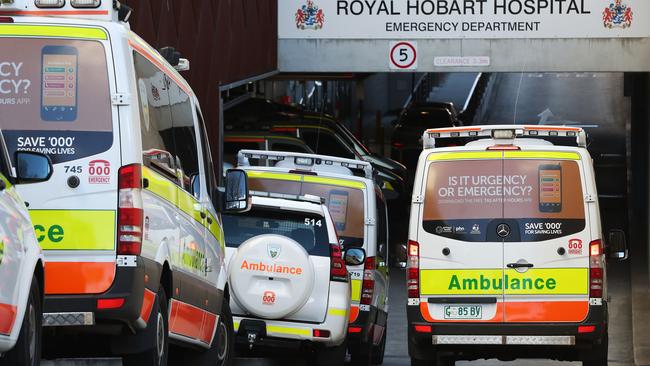Tasmania Police officers forced to step in to plug gaps in state’s ailing health system
In another sign of a health system under significant strain, Tasmania Police officers were called to attend to a seriously ill suspected overdose patient because no ambulances were available.
Tasmania
Don't miss out on the headlines from Tasmania. Followed categories will be added to My News.
TASMANIAN police were forced to attend alone to a seriously ill suspected overdose patient for almost two hours because no ambulances were available, in what the police union says is becoming all too common.
Officers responded to the patient in southern Tasmania at 5.20pm on Thursday because Ambulance Tasmania had no units able to attend, in another sign of a health system under significant strain.
It is understood an ambulance crew that had been on the way to treat the patient was diverted to a more serious incident, before paramedics eventually arrived 7pm.
Police Association of Tasmania president Colin Riley said covering such gaps in the system was a “common problem” for police.
“If they are ramped [at the hospital], we are attending their jobs in their absence,” he said.
“If the shoe is on the other foot, no one can attend our jobs, so we’re backfilling and that stretches us.”

Mr Riley stressed that it was not the fault of paramedics, but was instead emblematic of worsening capacity problems within the health system.
He said it put police officers in a precarious position because while they had basic first aid training, they did not have the skills to perform the work of paramedics.
“We shouldn’t be doing it because we’re not trained for it,” he said.
“The public, if they want an ambulance, they don’t want police there working on them.”
Health and Community Services Union Tasmania secretary Tim Jacobson said such cases were another sign resources were not keeping up with the massive increase in demand in the system.
Mr Jacobson said in the past week there had again been “terrible scenes” of ramping outside the Royal Hobart Hospital.
“While the government should be congratulated for putting on additional staff, we really need a significant increase in staff to actually deal with the increased presentations we have,” he said.
“The only way to resolve it is to put additional resources into Ambulance Tasmania and deal with what we all know is a problem with our hospital system, and that is that we still have not enough beds.”

Ambulance Tasmania said it followed a national model of triage that prioritised call-outs.
“Ambulance Tasmania always responds to calls utilising nationally consistent triage principles, which means people who are in the most urgent need of medical intervention receive it first,” a spokesman said.
“Triage protocols ensure we are doing what needs to be done to save lives.”
Health Minister Jeremy Rockliff said the government was delivering an additional 48 paramedics, including new crews in Launceston and Hobart that would be on the road by December.
“This election commitment is on top of the 170 full-time equivalent paramedics and dispatch officers we have recruited since coming to government,” Mr Rockliff said.
“Encouragingly, the latest health dashboard shows response times are falling despite the ambulance response incidents requiring an ambulance remaining at near record levels.”
Mr Jacobson said a system-wide approach to addressing the strained health system was needed, because health was the biggest issue facing Tasmanians.
“We’re older, we’re sicker, we have more chronic disease than any other state, we have more socio-economic disadvantage and are more regionally dispersed. There are a number of factors and they are not going to subside,” he said.
More Coverage
Originally published as Tasmania Police officers forced to step in to plug gaps in state’s ailing health system





